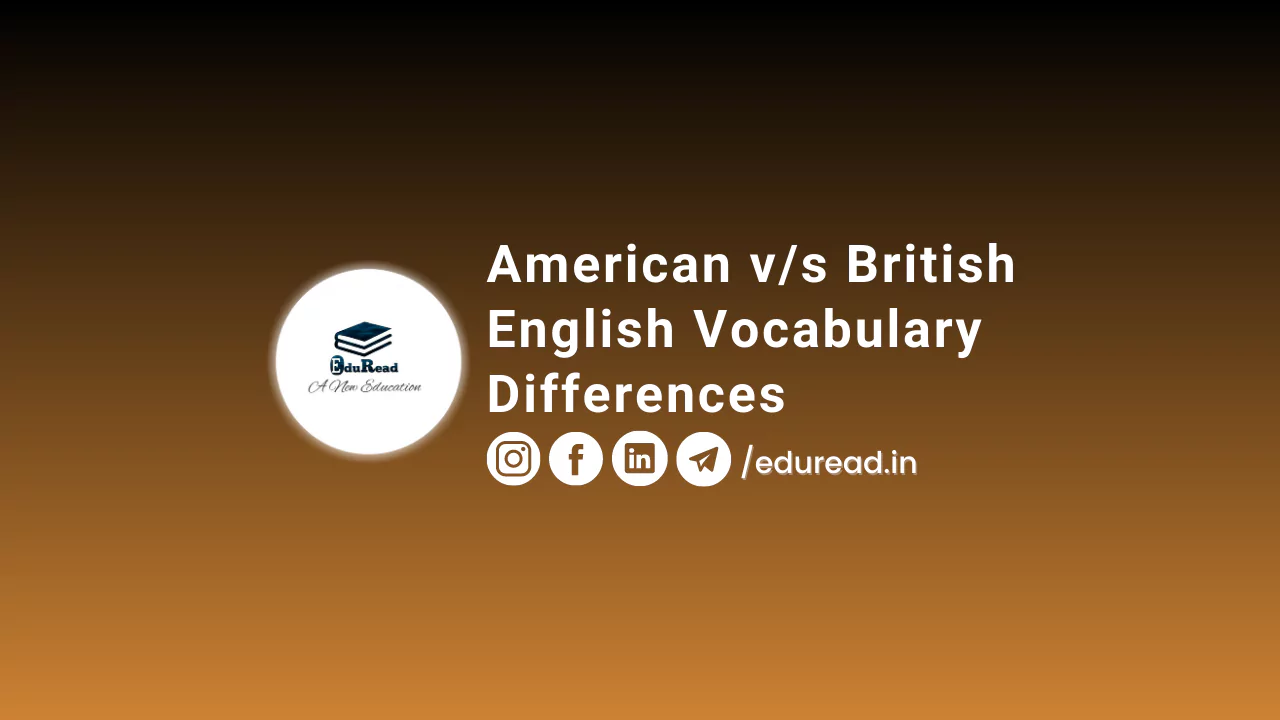Language is one of the most important aspects of culture, and it can vary greatly from region to region. One of the most significant differences in the English language is between American and British English. Despite being the same language, there are many differences in the vocabulary used in the United States and the United Kingdom.
One of the most significant differences between American and British English is the words used to describe everyday items
For example, in the United States, a small body of water is called a “creek,” while in the United Kingdom, it is called a “stream.” Similarly, the American word for an apartment is “apartment,” while in the United Kingdom, it is “flat.” These small differences can sometimes cause confusion, especially for those who are not familiar with both forms of English.
Another area where American and British English differ is in the use of slang. American English is known for its use of colorful and informal language, while British English is often more formal. For example, in American English, people might use the word “awesome” to describe something they really like, while in British English, people might say “marvelous” or “splendid.” Similarly, Americans might use the word “guy” to refer to a man, while in the UK, the word “bloke” is more commonly used.
One area where American and British English converge is in the use of technology-related vocabulary
For example, terms like “computer,” “internet,” and “smartphone” are used interchangeably in both forms of English. However, there are still some differences in the way that technology-related terms are used. For example, in the United States, people are more likely to use the term “cell phone” to refer to a mobile phone, while in the United Kingdom, people are more likely to use the term “mobile phone.”
Another area where American and British English differ is in the use of certain idioms and expressions. For example, in the United States, people might say “I’m all set” to mean that they are ready to go, while in the United Kingdom, people might say “I’m sorted.” Similarly, Americans might say “It’s a no-brainer” to indicate that something is obvious, while in the UK, people might say “It’s a doddle.”
In conclusion, the differences between American and British English vocabulary are numerous and often subtle. These differences can sometimes cause confusion, but they also highlight the rich diversity of the English language. By doing so, you can become a more effective communicator and better understand the nuances of each form of English.
It is important to note that these vocabulary differences are not exclusive to American and British English. Other English-speaking countries, such as Canada, Australia, and New Zealand, also have their own unique vocabularies and expressions.
To further explore the differences between American and British English vocabulary, let’s take a closer look at some specific examples:
Clothing: In the United States, a sweater with buttons is commonly referred to as a “cardigan,” while in the United Kingdom, it is called a “jumper.” Similarly, Americans might wear “sneakers,” while in the UK, they would wear “trainers.”
Food: We have already touched on the differences between “cookies” and “biscuits” and “fries” and “chips.” However, there are many more examples of vocabulary differences related to food. For instance, Americans might eat “candy,” while in the UK, it is called “sweets.” Americans might also enjoy “pie,” while in the UK, “pudding” is more commonly used.
Transportation: The vocabulary used to describe different modes of transportation can also vary between American and British English. For example, Americans might take the “subway,” while in the UK, it is called the “underground.” Similarly, Americans might drive a “sedan,” while in the UK, it is called a “saloon car.”
Education: The terminology used in education can also differ between American and British English. For example, in the United States, a student might earn a “degree,” while in the UK, it is called a “qualification.” Additionally, Americans might attend “college,” while in the UK, it is called “university.”
Sports: Finally, even the vocabulary used to describe sports can differ between American and British English. For example, Americans might play “soccer,” while in the UK, it is called “football.” Similarly, Americans might watch “baseball,” while in the UK, it is called “rounders.”
Conclusion
In conclusion, the differences between American and British English vocabulary are numerous and often subtle. From everyday items to food, transportation, education, and sports, the vocabulary used in these two forms of the English language can vary greatly. By being aware of these differences and learning to navigate them, you can become a more effective communicator and better understand the nuances of each form of English.
Follow Us for more such content to improve your speaking skills:
Check out this blog to overcome Public Speaking Fear: https://eduread.in/car-vocabulary-words-speak-new-york/
And visit us for more
